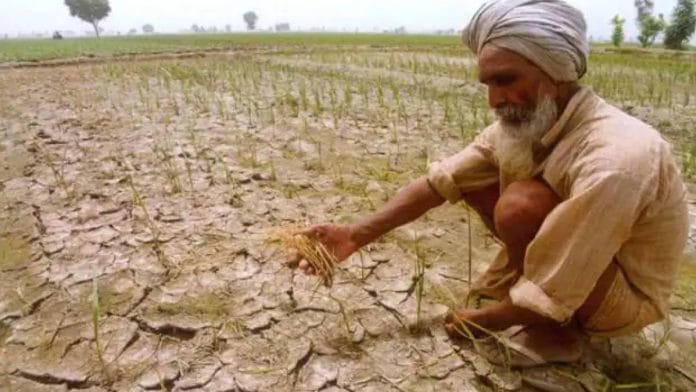New Delhi: The Supreme Court Tuesday advised the Punjab government to reconsider a state law aimed at conserving groundwater, which was resulting in stubble-burning and increased air pollution in the north of India, especially the Delhi and National Capital Region.
It also called for the substitution of paddy with other crops over concerns that paddy cultivation was affecting the groundwater table of the state.
The court was hearing matters relating to stubble-burning in Punjab when senior advocate Gopal Sankaranarayanan brought to its attention the provisions of the Punjab Preservation of Subsoil Water Act, 2009.
The law prohibits sowing of paddy seeds before 10 May every year and transplantation before 10 June, allowing for the crop to be sown only during the monsoon months.
As a result, paddy is sown in June-July (monsoon months) and harvested in October-November, while wheat is sown in November-December and harvested in April-May.
According to media reports, it is owing to this restricted cultivation period that farmers are left with less time to prepare their fields for the wheat crop after the paddy has been harvested, and resort to burning crop residue, adding to the air pollution.
The link between groundwater conservation and air pollution had also been flagged in a study titled ‘Tradeoffs Between Groundwater Conservation and Air Pollution From Agricultural Fires in Northwest India’, published in Nature Sustainability in 2019, and was later confirmed by researchers at Dehradun-based Indian Institute of Remote Sensing in a 2022 study published in Scientific Reports.
The top court has reportedly earlier too called out the Punjab government on its restrictive water management legislation, with the state defending the law, claiming it had helped save 1,000 billion litres of water.
In 2020, the Centre had spoken of bringing in a law to check stubble burning, but in 2021 gave in to the demand of farmers’ organisations and decriminalised it.
ThePrint explains the Punjab law for saving groundwater, said to be impacting air quality in nearby states.
Also Read: Cash sops, machine subsidies & more — why nothing has helped stop stubble burning in Punjab
What the law stipulates
A water-intensive crop, paddy reportedly comprises 75-80 percent of the summer cultivation in the state, taking a toll on its groundwater.
To remedy the situation, the Punjab government had brought in the Punjab Preservation of Subsoil Water Act 2009, to mandatorily delay the sowing and transplantation of paddy, to restrict its cultivation to monsoon, so that rainwater could take away the pressure on groundwater during irrigation.
“No farmer shall sow nursery of paddy before 10th Day of May of the agricultural year or such other date as may be notified by the State Government by notification in the Official Gazette for any local area,” states the legislation.
The Act also provides powers to an authorised officer to enter the farm to assess violations of the law and to issue directions to a farmer to destroy the paddy planted before the notified timeframe.
The expense of such action is to be borne by the farmer, according to the legislation.
“In case a farmer does not act as per the directions of the authorised officer… the authorised officer shall cause such nursery of paddy, or sown or transplanted paddy, as the case may be, to be destroyed at the expenses of such farmer,” the law adds.
It also attaches a monetary penalty of Rs 10,000 per month per hectare of land for contravention of the law.
Further, the Act has an “overriding” effect on any other contrary law in Punjab and supersedes all other legislation on the subject.
“Notwithstanding anything to the contrary contained in any other law, enacted by the Punjab State Legislature for the time being in force, the provisions of this Act shall have effect,” reads the 2009 Act.
Farmers’ organisations have reportedly contended that the late sowing provides a shorter window to prepare their fields, and thus stubble-burning remains a quick solution.
Haryana, too, has similar guidelines in place for planting of paddy and according to media reports, routinely sets timelines for the sowing and transplantation of the crop in the state.
(Edited by Nida Fatima Siddiqui)
Also Read: Niti Aayog index shows agriculture booming in Punjab & Haryana, but environment paying price






